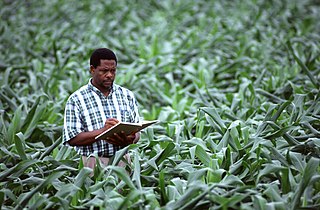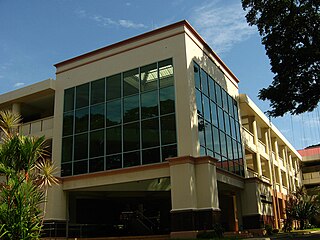
A medical license is an occupational license that permits a person to legally practice medicine. In most countries, a person must have a medical license bestowed either by a specified government-approved professional association or a government agency before they can practice medicine. Licenses are not granted automatically to all people with medical degrees. A medical school graduate must receive a license to practice medicine to legally be called a physician. The process typically requires testing by a medical board. The medical license is the documentation of authority to practice medicine within a certain locality. An active license is also required to practice medicine as an assistant physician, a physician assistant or a clinical officer in jurisdictions with authorizing legislation.
Licensure means a restricted practice or a restriction on the use of an occupational title, requiring a license. A license created under a "practice act" requires a license before performing a certain activity, such as driving a car on public roads. A license created under a "title act" restricts the use of a given occupational title to licensees, but anyone can perform the activity itself under a less restricted title. For example, in Oregon, anyone can practice counseling, but only licensees can call themselves "Licensed Professional Counselors." Thus depending on the type of law, practicing without a license may carry civil or criminal penalties or may be perfectly legal. For some occupations and professions, licensing is often granted through a professional body or a licensing board composed of practitioners who oversee the applications for licenses. This often involves accredited training and examinations, but varies a great deal for different activities and in different countries.
The United States Medical Licensing Examination (USMLE) is a three-step examination program for medical licensure in the United States sponsored by the Federation of State Medical Boards (FSMB) and the National Board of Medical Examiners (NBME). Physicians with a Doctor of Medicine (MD) degree are required to pass the USMLE for medical licensure. However, those with a Doctor of Osteopathic Medicine degree (DO) are required to take the COMLEX-USA (COMLEX) exams.

West Visayas State University is a public normal research university located in La Paz, Iloilo City, Western Visayas region of the Philippines. It was established in 1924 as Iloilo Normal School under the tutelage of the Thomasites, but dates back its founding in 1902 as a part of Philippine normal school system with Iloilo National High School established by the American colonial government. It later became West Visayas State College in 1965 and acquired its university status becoming West Visayas State University in 1986.
The National Council Licensure Examination (NCLEX) is a nationwide examination for the licensing of nurses in the United States, Canada and Australia since 1982, 2015 and 2020 respectively. There are two types, the NCLEX-RN and the NCLEX-PN. After graduation from a school of nursing, one takes the NCLEX exam to receive a nursing license. A nursing license gives an individual the permission to practice nursing, granted by the state where they met the requirements.

An agriculturist, agriculturalist, agrologist, or agronomist, is a professional in the science, practice, and management of agriculture and agribusiness. It is a regulated profession in Canada, India, the Philippines, the United States, and the European Union. Other names used to designate the profession include agricultural scientist, agricultural manager, agricultural planner, agriculture researcher, or agriculture policy maker.

Cebu Institute of Medicine (CIM) is the independently administered medical school arm of Velez College in Cebu City, Philippines.
The University of the East College of Dentistry was first established as a unit of the Philippine College of Commerce and Business Administration in 1948. The college is one of the pioneers of dental education and labeled as one of the top dental schools in the Philippines.
The Philippine Nurse Licensure Examination is a 500-item multiple choice exam to test basic nursing level competency which considers the objectives of the nursing curriculum, the broad areas of nursing and other related disciplines and competencies. It is held every June and December annually in various public schools throughout the Philippines. Room assignment for the exams are posted outside the Professional Regulation Commission building at least three days before the exam.
Legal education in the Philippines is developed and offered by Philippine law schools, supervised by the Legal Education Board. Previously, the Commission on Higher Education supervises the legal education in the Philippines but was replaced by the Legal Education Board since 1993 after the enactment of Republic Act No. 7662 or the Legal Education Reform Act of 1993.

The University of Santo Tomas Faculty of Medicine and Surgery (USTFMS) is the medical school of the University of Santo Tomas, the oldest and largest Catholic university in Manila, Philippines.
Medical education in Philippines is principally offered and developed by accredited and government recognized medical schools in the country.
Doctor of Osteopathic Medicine is a medical degree conferred by the 38 osteopathic medical schools in the United States. DO and Doctor of Medicine (MD) degrees are equivalent: a DO graduate may become licensed as a physician or surgeon and thus have full medical and surgical practicing rights in all 50 US states. As of 2021, there were 168,701 osteopathic physicians and medical students in DO programs across the United States. Osteopathic medicine emerged historically from osteopathy, but has become a distinct profession.
The National Board of Medical Examiners (NBME), founded in 1915, is a United States non-profit which develops and manages assessments of health care professionals. Known for its role in developing the United States Medical Licensing Examination (USMLE) in partnership with the Federation of State Medical Boards (FSMB), USMLE examinations for medical students and residents are used by medical licensing authorities in the U.S. to help determine qualifications to grant and recognize medical licenses. NBME also creates assessments and materials that are used by medical students, medical educators, practicing physicians, and for state testing of physicians already holding licenses.

Health professional requisites refer to the regulations used by countries to control the quality of health workers practicing in their jurisdictions and to control the size of the health labour market. They include licensure, certification and proof of minimum training for regulated health professions.

The Central Philippine University College of Medicine, also referred to as CPU COM, CPU College of Medicine, CPU ColMed or CPU Medicine, is the medical school of Central Philippine University, a private university in Iloilo City, Philippines. Established in 2002 and opened in 2003 with its first dean, Dr. Glenn A. M. Catedral, it is one of the youngest colleges and academic units of the university.

The Silliman University College of Business Administration is one of the constituent colleges of Silliman University, a private research university found in Dumaguete, Philippines. The College was established in 1938 in the same year Silliman acquired university status. When the College opened, it offered courses in accounting, secretarial practices and economics. In the years that followed additional programs were added into its course offerings and various modifications were made in its organizational structure.

The Saint Louis University-International School of Medicine is one of the nine academic units of Saint Louis University, a private, Roman Catholic, CICM university in the Philippines. It is housed at Dr. Jose Rizal Building inside the SLU Main campus adjacent to its partner hospital, the Saint Louis University-Hospital of the Sacred Heart founded a year after the school's foundation in 1976.
The San Beda College of Medicine is the medical school of the San Beda University in Manila established in 2002.







